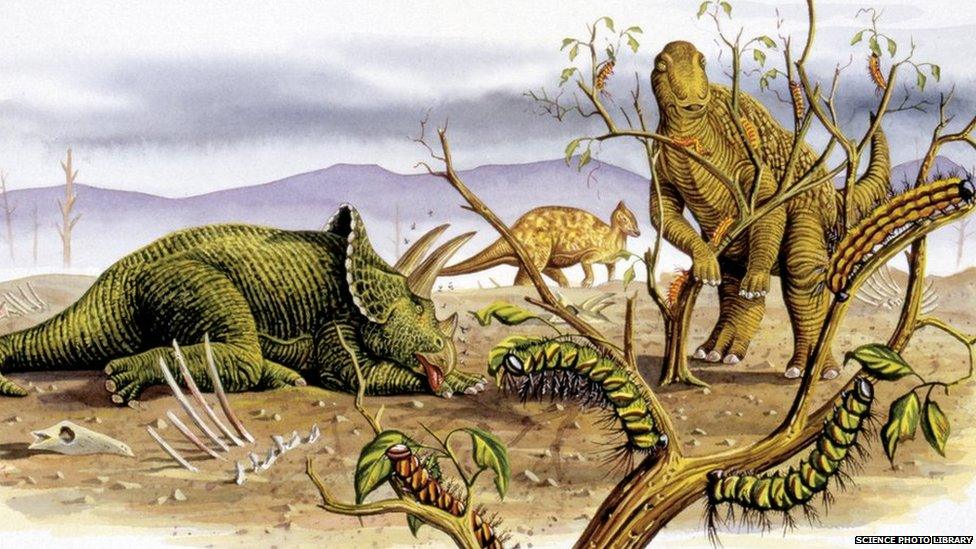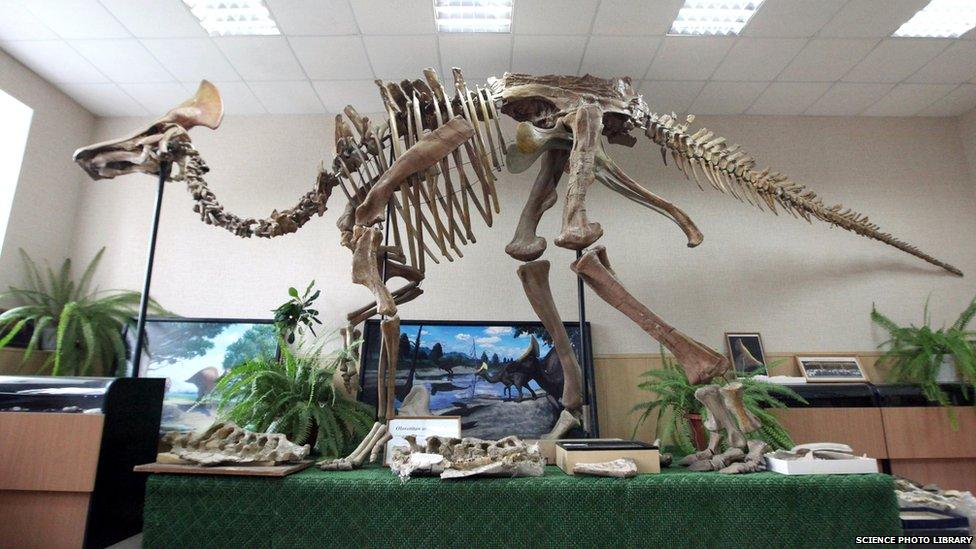Plant-eating dinosaurs 'strayed from veggie diet'
- Published

Duck-billed dinosaurs may have been tempted away from a vegetarian diet
The idea of plant-eating dinosaurs having a strict vegetarian diet has been called into question.
New evidence suggests that some dinosaurs snacked on shellfish and insects as well as plant food.
A study of fossilised droppings indicates duck-billed dinosaurs dined on crabs at certain times of the year.
Fossil remains of dinosaur dinners is rare, so this pescatarian diet may have been overlooked in the past.
The popular perception of what dinosaurs ate was simplistic, said Dr Karen Chin of the University of Colorado, Boulder, US, who led the research.
"Plant-eating dinosaurs had more complex diets than we assumed that they had, and these diets included feeding on some animals, including at least crustaceans, and this was more like diets of modern plant-eating birds," she told BBC News.
The new evidence comes from an area of southern Utah that is regarded as a treasure trove of fossils from the Late Cretaceous Period, when dinosaurs were coming to the end of their reign.

The hadrosaurs were duck-billed dinosaurs that flourished some 80-65 million years ago
Fossilised dinosaur droppings found on the Kaiparowits Plateau give new insights into what was on the menu for dinosaurs.
Fragments of shell and other remains show they consumed crustaceans such as crabs, which likely sheltered in rotting wood.
The dinosaurs probably actively hunted for crustaceans and insects in a "woody stew" rather than swallowing them accidently, the researchers said.
Animal products may have been a vital source of protein, particularly when they were about to lay their eggs.
Plant guzzlers
"This find really breaks the mould for what we expect a plant-eating dinosaur to do," said Dr Steve Brusatte of the University of Edinburgh, UK, who was not connected with the study.
"We think of them as these multi-tonne plant guzzlers, but some of them also indulged in other types of food.
"And I guess we shouldn't be too shocked because that's true of many plant eaters today, they'll ingest other stuff, sometimes accidentally, sometimes to supplement their diet with other nutrients."
The droppings were left by dinosaurs some 75 million years ago on what would then have been a landscape dotted with rivers and ponds.
Duckbilled dinosaurs were common in the area at the time. The bones and teeth of the reptiles suggest they spent most of their time on land, though close to freshwater, feeding on tough plants such as ferns and conifers.
The discovery, detailed in the journal Scientific Reports, external suggests other plant-eating dinosaurs may have in fact been omnivorous.
"We'll just have to find more evidence and we're always on the look out for that," said Dr Chin.
Follow Helen on Twitter, external.